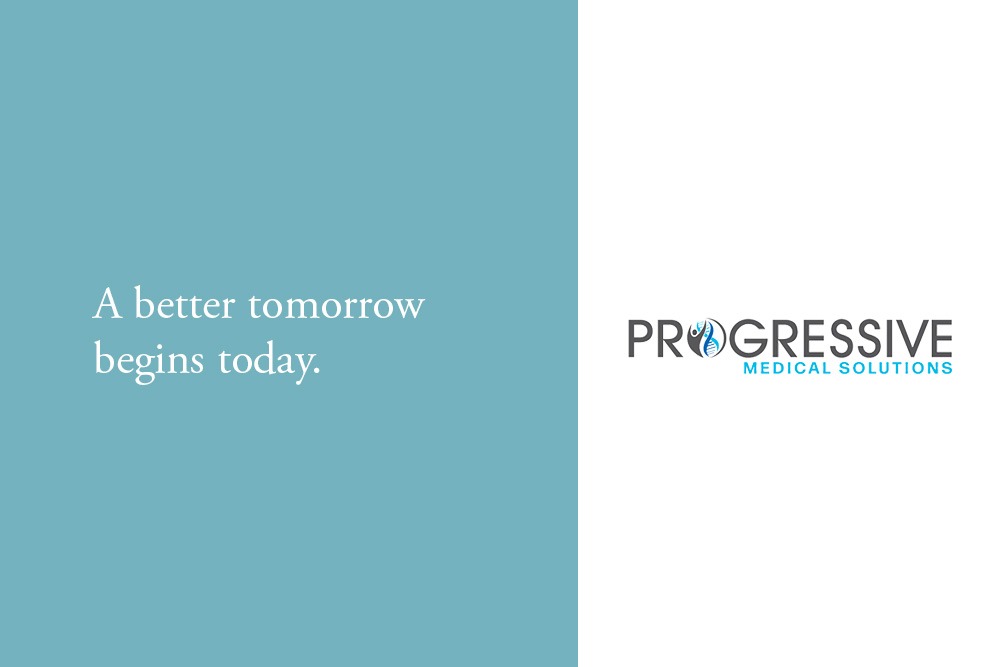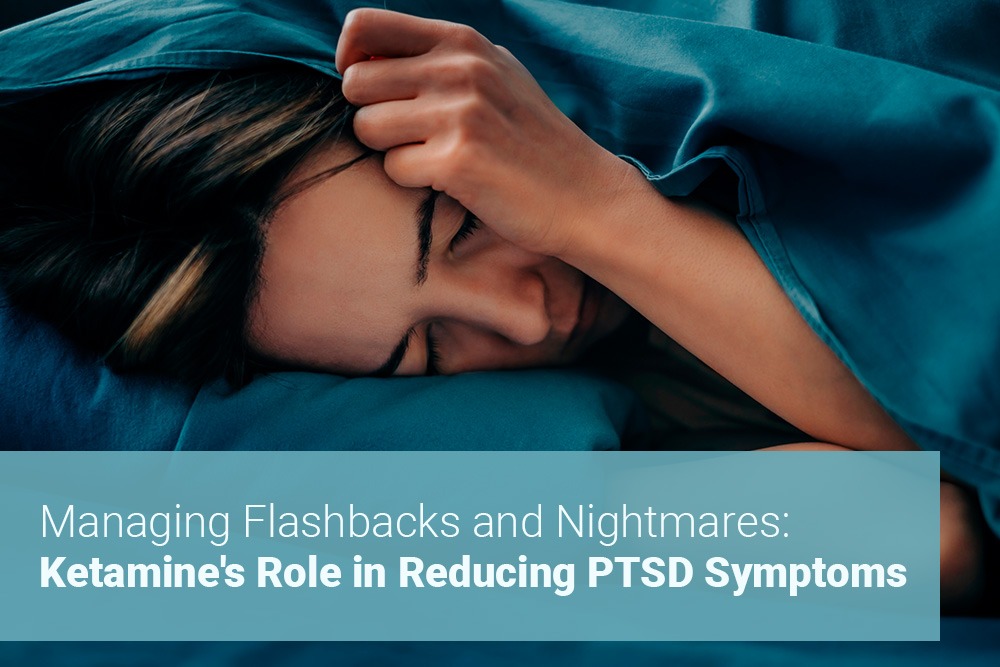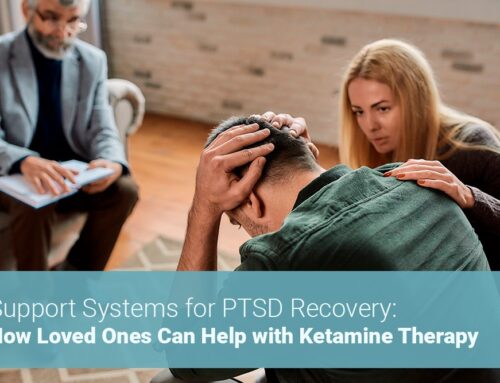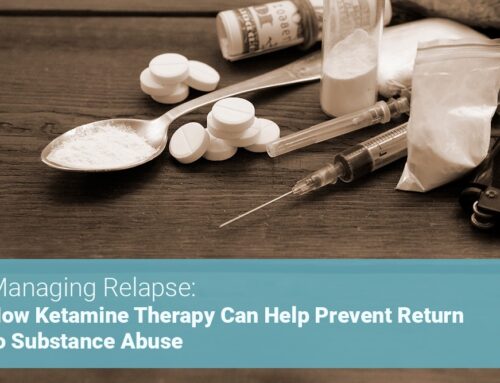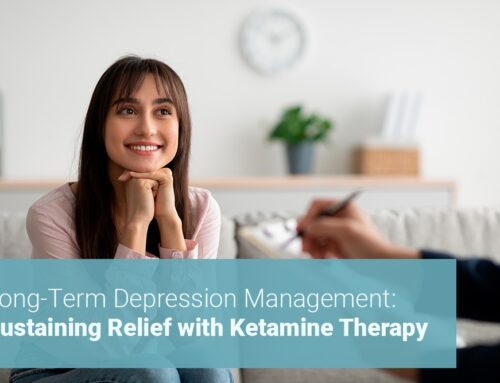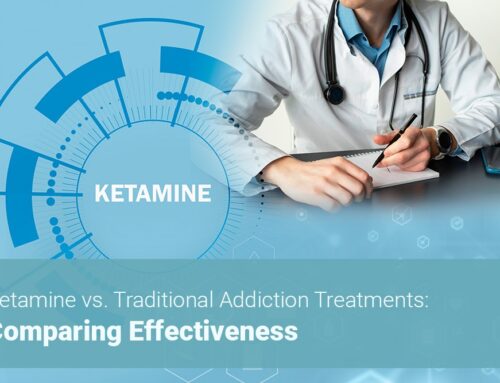Nightmares and flashbacks are hallmarks of PTSD. Sufferers relive traumatic memories day and night. Terrifying and often violent, these intrusive images profoundly and predictably affect mental health. If you’re one of the 8 million Americans experiencing these symptoms of post-traumatic stress, ketamine therapy from Progressive Medical Solutions could help relieve the torment.
Nightmares and Flashbacks Explained
Nightmares and flashbacks are two distinct yet distressing symptoms that characterize PTSD. Inexorably linked, nightmares are distressing dreams that provoke fear associated with traumatic events. Physiologically, they occur during (REM) sleep — the sleep stage associated with intense brain activity — often leading to frequent waking and restless sleep.
Flashbacks have similar characteristics but occur suddenly when the sufferer is awake. As vivid as real life, they’re a replay of trauma. The physiological cause of flashbacks isn’t entirely clear, but it appears directly related to how the brain encodes events. This process involves changes in the brain’s memory and emotional processing systems.
The Impact of Nightmares and Flashbacks
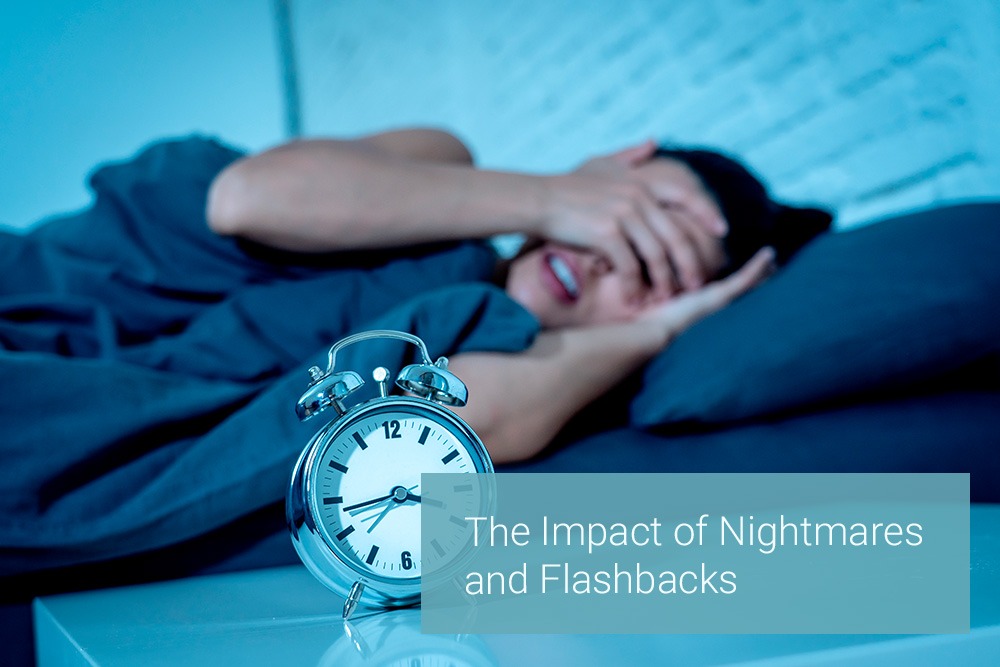
Nightmares and flashbacks impact the lives of those with post-traumatic stress in deep and complex ways. Veterans seeking PTSD treatment often describe these life-altering symptoms:
Emotional Distress
Nightmares and flashbacks evoke the same feelings as traumatic events, causing fear, anger, and despair. These emotions can be overwhelming and may persist long after the nightmare or flashback is over, interfering with daily function at school, home, or work.
Hyperarousal
Flashbacks and nightmares can trigger a heightened state of physical arousal manifested by an increased heart rate, sweating, and a brisk fight-or-flight response. Feeling continually restless or on guard makes it difficult for people with PTSD to relax and feel safe. Severe symptoms may be mistaken for a heart attack.
Sleep Disturbance
Nightmares disrupt sleep patterns, leading to sleep deprivation, daytime fatigue, and difficulty concentrating on daily activities. Untreated, they may exacerbate other symptoms of PTSD, including depression and anxiety, leading to chronic stress with physical and emotional implications.
Avoidance Behavior
Traumatic memories are often so disturbing that individuals with PTSD may avoid the people, places, or events that trigger nightmares and flashbacks. This self-imposed social isolation limits participation in once-pleasurable activities. Friends, loved ones, and colleagues may find it challenging to cope with perceived rejection, negatively affecting family and workplace relationships.
Self-Harm
In severe cases, the emotional impact of nightmares and flashbacks can increase the risk of self-harm or suicide — a leading cause of death in the United States.
Suicidal ideation, among the most severe symptoms of post-traumatic stress disorder, requires professional help but remains resistant to most conventional PTSD treatments.
In studies, however, ketamine therapy has proven helpful as a PTSD treatment for adults, reducing overall symptoms, including thoughts of self-harm.
How Does Ketamine Therapy Work?
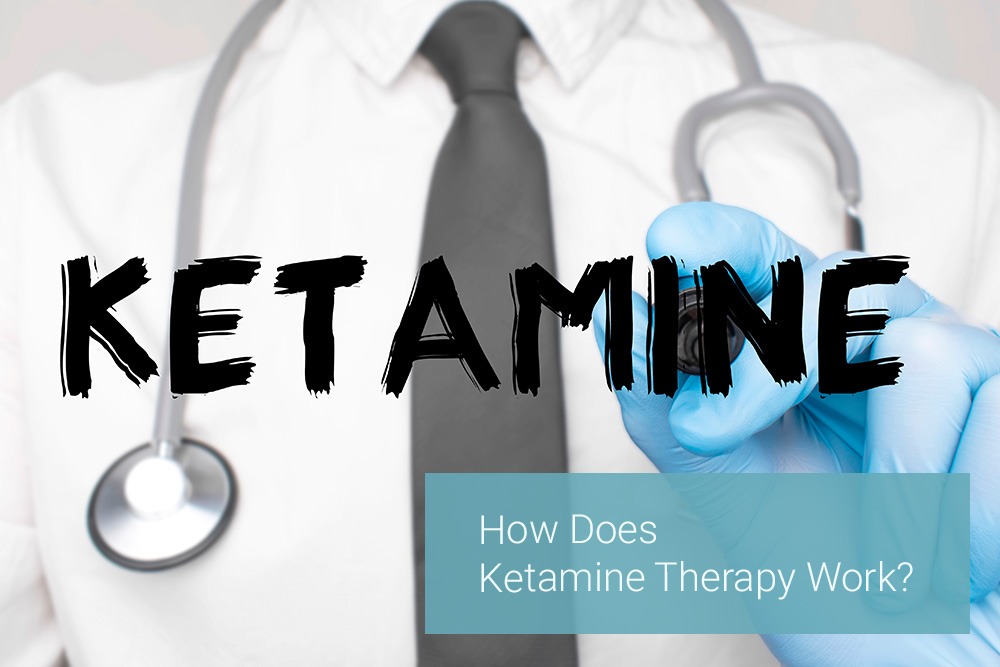
Ketamine therapy has gained notoriety as a potential treatment for a broad range of mental health conditions, including PTSD. While it is not yet a first-line treatment, research strongly suggests that ketamine may alleviate nightmares, flashbacks, and other PTSD symptoms through these and other mechanisms:
NMDA Receptor Modulation
NMDA receptors in the brain are gateways to memory and learning. Ketamine is an NMDA receptor antagonist that modulates the consolidation and retrieval of memories that may trigger nightmares and flashbacks.
Neuroplasticity
Ketamine has been shown to enhance neuroplasticity — the brain’s ability to rewire faulty neural connections. For people with PTSD, it could facilitate the processing and adaptation of traumatic memories, reducing the frequency and severity of nightmares and flashbacks.
Mood Improvement
Many people with PTSD also experience symptoms of depression and anxiety. Ketamine, well-known for its rapid antidepressant effects, may help reduce the impact of emotional distress associated with flashbacks and nightmares by improving overall mood.
Perspective
PTSD is a vicious cycle in which one symptom triggers the next. Mired in this doom loop, the brain reinforces tunnel vision related to traumatic experiences.
Ketamine developed as a dissociative anesthetic, produces a mild psychedelic effect in which people can gain new insights into their trauma. This altered state of consciousness gives many individuals a new perspective on their thoughts and behaviors, facilitating self-directed change.
The Benefits of Ketamine for PTSD Treatment
Ketamine shows surprising benefits versus conventional PTSD treatment, including:
Rapid Relief
SSRIs, the only approved PTSD treatment for veterans can take up to 12 weeks to work, and remission is rarely complete. Ketamine infusions can relieve PTSD symptoms in less than 24 hours, a potential lifesaver for suicidal patients.
Limited Side Effects

To date, studies show there are few serious side effects related to ketamine therapy. The most common, such as headache and nausea, resolve within an hour of treatment.
Less Risk of Addiction
Some drugs used to treat nightmares and flashbacks, such as benzodiazepines, have addictive properties. Ketamine carries less risk of addiction.
Fewer Drug Interactions
There are no significant contraindications for using ketamine with other psychoactive drugs. Patients who take other medications, such as prescription pain relievers, can still qualify for treatment.
Long-Lasting Relief
A round of ketamine infusions can offer weeks of relief. Most studies show benefits lasting a month or longer, with full remission achieved in several compelling cases.
Does Progressive Medical Solutions Offer PTSD Treatment for Veterans?
Progressive Medical Solutions provides PTSD treatment in Las Vegas for any adult in need, including veterans.
Is Ketamine Therapy Safe?
Ketamine treatment for PTSD is still an area of ongoing research — its long-term safety is not yet fully established. But the consensus among most professionals is that it’s generally safe, effective, and well-tolerated.
To minimize risk, patients are carefully screened, and treatment plans are customized to meet the individual’s unique needs. Licensed healthcare professionals administer infusions in a comfortable, medically controlled environment in which safety is the top priority.
Final Thoughts
Ketamine therapy offers hope for people trapped by PTSD. However, it can be challenging to find as a new and evolving treatment. Thankfully, if you’ve had enough of the nightmares and flashbacks, PTSD treatment in Las Vegas is available with one call to Progressive Medical Solutions. A better tomorrow begins today.
